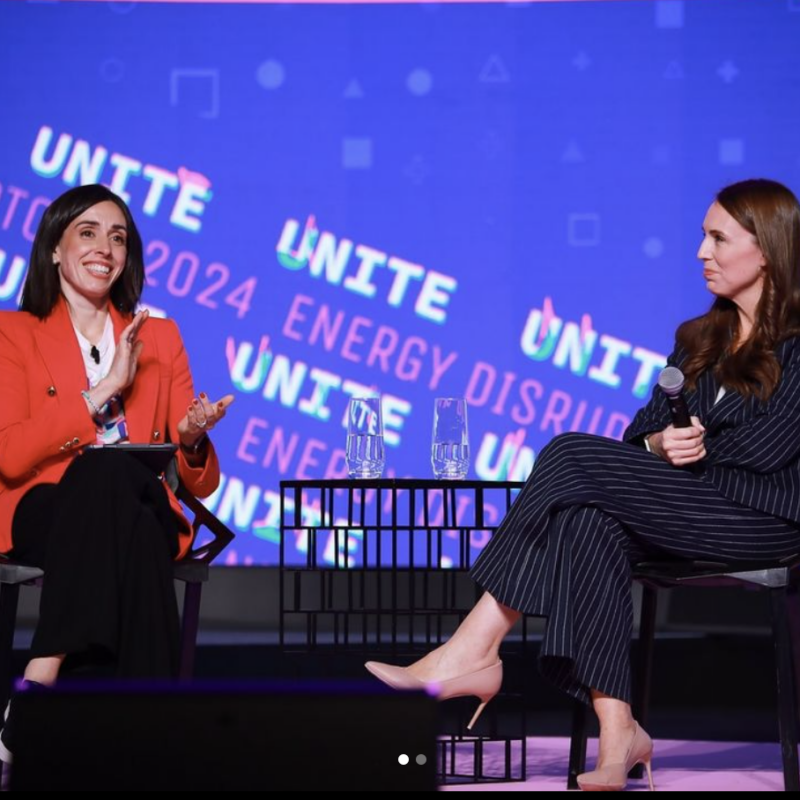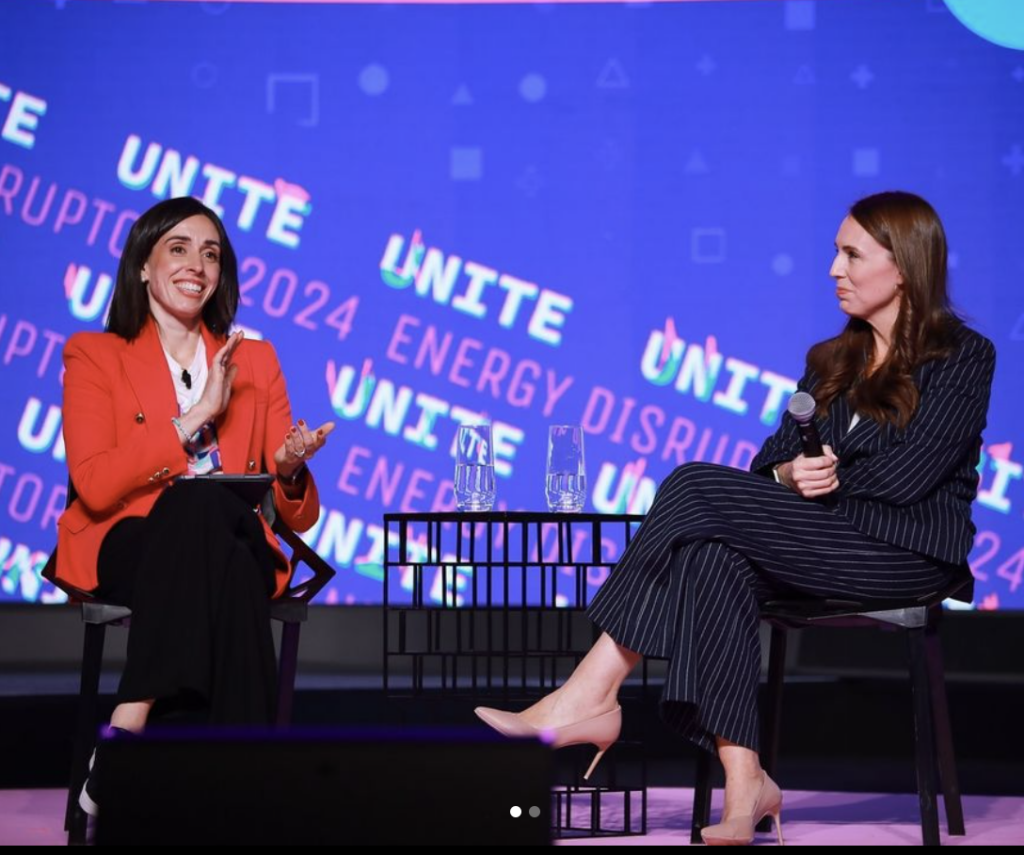Kindness Is a Competitive Advantage—Here’s Why

Lately I’ve been thinking back to a conversation I had at Energy Disruptors 2024 with Jacinda Ardern, former Prime Minister of New Zealand and a beacon for empathetic leadership.

Ardern is no stranger to navigating moments of deep crisis. In 2019, following the tragic Christchurch mosque shootings that took 51 lives, she was widely praised for how she led New Zealand through that unimaginable horror. It wasn’t just her words that resonated; it was her actions. She showed up, stood with the grieving, listened intently, and brought empathy to the forefront in a way we don’t often see from our leaders. Then, within days, she translated her compassion into action by pushing through major gun law reforms at record speed.
Her leadership revealed a profound truth: when kind words evolve into kind actions that we unleash the power to create change.
The Business Case for Kindness
Today’s world feels like it’s fuelled by division and loud, unkind rhetoric (just look at any recent election campaign)—it’s almost become the background noise we don’t even question anymore. But it’s wrong to think nastiness “wins”.
Associate Professor from the University of Winnipeg, Jeremy Frimer, studied U.S. Congress debates from 1996 to 2015 and found that when leaders got nasty, their approval ratings plummeted. But when they spoke with respect and generosity, people listened.
More recently, Frimer’s analysis of Donald Trump’s tweets from mid-2015 to January 2021 (before his ban) showed a similar pattern: while his supporters didn’t stop backing him, they rarely “liked” his more aggressive posts. Patterns of followership for both Trump and Biden saw considerable spikes following more civil tweets vs those that were less so.
The takeaway? People may tolerate unkindness, but they don’t rally behind it.
On the flip side, empathy has demonstrable gains, particularly when we look at the impact it creates in team culture. Empathy is the capacity to step into someone else’s shoes, to feel and understand their emotions, and to respond with genuine care and understanding. In other words, empathy is the understanding that informs the kind action.
Just consider your own experience. Most of us have endured working for a nasty or rude boss at some point, and (hopefully) also for a leader who has demonstrated a high level of care and consideration for you and your colleagues. How did it feel to exist in both those environments? How did both impact your work?
If your experience is anything like the research by The Catalyst Organisation, you would have experienced higher levels of creativity (61%) and engagement (76%) in those higher empathy leadership cultures compared to those with lower empathy leaders (13% and 32%, respectively). The study also finding that empathy is a force for productivity, better life-work integration, and positive work experiences.
Kindness also isn’t to be confused with a kumbaya or “soft” culture—it is not the same thing as politeness. Kindness doesn’t create a low-performing culture; in fact, true kindness fuels a high-performing culture by encouraging honest feedback and tough conversations that support growth and accountability. Because caring about someone’s growth enough to actively invest in giving the feedback and coaching to get there is one of the highest expressions of kindness. Leaders who infuse kindness into their culture aren’t just making people smile—they’re making their teams unstoppable.
Leaders Who Demonstrate Kindness in Action
Jacinda Ardern famously told the United Nations in 2018:
“If I could distil it down into one concept that we are pursuing in New Zealand, it is this: kindness.”
Her approach—prioritising connection and care over control—is echoed by some of today’s most impactful leaders:
- Satya Nadella, CEO of Microsoft, transformed a cutthroat culture into one that thrives on growth and collaboration, simply by leading with empathy.
- Mary Barra, CEO of General Motors, rebuilt trust with a people-first approach, steering her company through challenges with transparency and care.
- Gareth Southgate, England’s men’s football manager, proved that compassionate leadership drives success, taking his team to unprecedented heights.
Whether in boardrooms, locker rooms, or parliaments, these leaders demonstrate that leading with kindness and compassion is redefining what it means to succeed.
Kindness Is Contagious (and Powerful!)
What I love most about kindness as a leadership quality is how incredibly accessible it is. It doesn’t depend on resources, qualifications, or a fancy job title. You don’t need to wait until you’ve climbed the professional ladder—it’s a skill you can start using right now. The question is: how often do you use it?
If you need any further encouragement to give it a go, a recent study out of the UK shows that simple gestures—like giving up your seat, checking on a neighbour, or helping with heavy bags—can create a ripple effect that far outlasts the moment. 41% of people who experience kindness feel inspired to pass it on, and 43% of those giving report a boost to their mental well-being.
Even better, one small act of kindness can fuel 2 hours and 16 minutes of positivity for the receiver. Imagine your quick gesture at 8 am still uplifting someone through their 9.30 am meeting.
Just last week I was hosting a virtual event for 700 leaders online and I invited everyone to take a moment in the chat to thank a colleague for something they’d done for them this year that had made a difference to them personally or professionally.
The chat didn’t stop for 40 minutes! It was incredible. My wonder is, how many of those thoughtful comments would have gone unsaid and unheard were it not for that mini moment?
The impact of those small acknowledgments will last far longer than two hours. They’ll change how those colleagues collaborate, show up in meetings, and support one another in challenging moments.
Over To You
World Kindness Day shouldn’t just be another feel-good social media moment. Use it as a launchpad. Make kindness a part of your leadership playbook.
To get you started, check out the bingo board below filled with simple acts of kindness:

So, ready to turn those kind thoughts into kind actions? Your team—and your heart—will thank you for it.
Loved this article? Then you’ll love Love Mondays.
Join the Love Mondays community and receive a short and sweet leadership lesson and mini activation challenge in your inbox each week – the Monday morning kick in the pants you’ve been looking for!
